BIOGRAPHY
| Browder, Bill | Freezing order |
| Cox, Keith | A Caring Life |
| Farooki, Roopa | Everything is true |
| Hunter, Clare | Embroidering her truth |
| Grenville, Kate | Elizabeth Macarthur’s letters |
| McCarthy, Wendy | Don’t be too polite, girls |
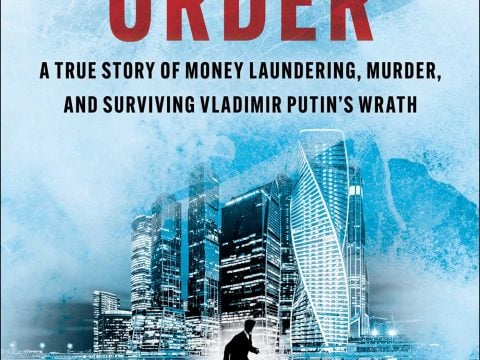 Freezing order / Bill Browder
Freezing order / Bill Browder
The thrilling follow-up to the author’s bestselling debut, Red Notice. Browder, CEO of Hermitage Capital Management, was one of the leading investors in Russia during the 2000s, and his strategy of “stealing analysis” made Hermitage one of the leading hedge funds in the world. “Instead of analyzing companies’ income statements and balance sheets like normal fund managers,” he writes, “my team and I would research how much was being stolen, how the thieves were doing the stealing, and who pocketed the stolen money. We would then use this information to file lawsuits [and] launch proxy fights.” When his Russian lawyer, Sergei Magnitsky, was beaten to death in a Moscow jail in 2009, the author sought to bring the murderers to justice. That crusade, along with his investigation into a $230 million tax refund scheme that significantly affected Hermitage’s business, made him an enemy of dangerous Russian oligarchs, including Putin, and he was thrown out of the country. From that point, Browder worked diligently to get to the bottom of the Russian coverup, a journey that took him around Europe and eventually to New York. Along the way, he encountered a number of unsavory characters, including John Moscow, who “had been at the New York District Attorney’s Office for 33 years and was one of their most aggressive prosecutors” before switching sides to defend the Russian oligarchs; Glenn Simpson, a “well-connected and effective smear campaigner”; and former U.S. Rep. Dana Rohrabacher, who, along with the others, helped “lubricate that machine that allows Putin and his cronies to get away with their crimes.” In 2012, Browder’s quest found some success in the passage of the Magnitsky Act, which allows the U.S. government to sanction those it sees as human rights offenders—and a version of which is now in place in more than 30 countries. The author’s story, a must-read for fans of Red Notice, is revealing and damning, exposing Putin and his minions as little more than greedy international criminals. A timely book combining mystifying financial shenanigans with a fast-paced crime saga. Kirkus Review, April 2022
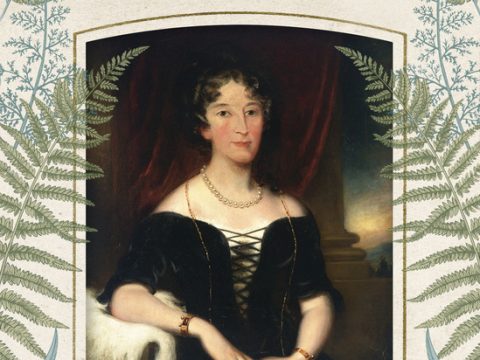 Elizabeth Macarthur’s letters / Kate Grenville
Elizabeth Macarthur’s letters / Kate Grenville
Most Australians grew up learning that this country’s wealth from wool was the result of John Macarthur importing Merino sheep for his farm near Parramatta, making him the ‘father’ of the wool industry. Grenville, on the other hand, believes that industry had a ‘mother’, Macarthur’s wife, Elizabeth, and her novel, A Room Made of Leaves, is a fictional account of Elizabeth’s life, using letters Elizabeth wrote as the skeleton for her story. At face value, those letters starting from 1790 to family and friends in England, seem innocuous enough, effusive in reference to John Macarthur, notoriously difficult, devious and disliked by people in the colony. He led a tumultuous and controversial life, dying insane in 1833. Macarthur read his wife’s letters before they were sent as, once received in England, they were likely to be shared widely. Grenville writes that in editing 65 of Elizabeth’s letters, she kept the parts that expressed Elizabeth’s personality, thoughts, feelings, and attitudes, rather than her description of events. She believes that Elizabeth cleverly used wit and irony in her letters, with recipients reading between the lines to detect her real meaning, particularly about her marriage. Sadly, there is no record of letters to her husband during the many years he spent in England fighting legal battles, while she administered their growing pastoral interests, including the sheep-breeding. Every mother will weep with Elizabeth as each of her four sons was sent to England as small boys to be educated, with only two returning to the family enterprise. This book should be read as a companion to A Room Made of Leaves. Enjoy the fiction, then get to know the real woman. Good Reading Magazine, June 2022
Return to top
GENERAL FICTION
| Barnes, Julian | Elizabeth Finch |
| Bestor-Siegal, Amanda | The caretakers |
| Clark-Platts, Alice | The Cove |
| Egan, Jennifer | The candy house |
| Fu, Melissa | Peach blossom spring |
| Isaka, KÅtarÅ | Three assassins |
| Jordan, Toni | Dinner with the Schnabels |
| Lotz, Sarah | Impossible |
| Magee, Audrey | The colony |
| Meddon, Rosie | Her patriotic duty |
| Novak, Genevieve | No hard feelings |
| Petit, Caroline | The natural history of love |
| Rimington, Stella | The Devil’s bargain |
| Shepherd, Peng | The cartographers |
| Thomas, D. M. | The white hotel |
| Thorne, Sandy | My mate Gidgee |
| Williams, Niall | This is happiness |
| Winslow, Don | City on fire |
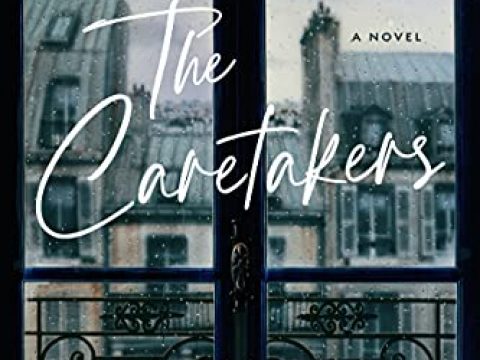 The caretakers / Amanda Bestor-Siegal
The caretakers / Amanda Bestor-Siegal
The mysterious death of a French child is blamed on an American au pair—but there’s more to the story. This debut novel unfolds in Maisons-Larue, a wealthy suburb of Paris, where au pairs sneak out every night to the cafes and clubs of the city center and wealthy, frustrated mothers compete for attention from their absent husbands, all in the immediate aftermath of the 2016 terrorist attacks on Paris. Alena and Lou, the au pairs at the center of the story, are flawed, full of contradictions, and seem fated to disappoint those who dare to love them. The women’s voices we hear in the novel—including the beloved French teacher Géraldine, forever mistaken for a foreigner in her own country because of her darker skin tone; Charlotte, the dead child’s mother, who has been desperate to hide her own less-than-pedigreed upbringing; Nathalie, Charlotte’s teenage daughter, who feels like an outsider in her mother’s second marriage; the au pairs who are trying to disappear from their past lives or find truer versions of themselves in France—all seem focused, in one way or another, on a shared desire for love and belonging. But it is the cold, quiet, could-be murderous Alena, with her silence throughout much of the novel and refusal to be known, that keeps the reader wanting more. When we finally hear her perspective, Alena offers a darker, more ominous solution to the problem facing the women in this world: “She tries not to want, and most of the time, she thinks she’s successful.” A well-paced narrative that moves through time and multiple perspectives with deft precision, this is a heart-wrenching exploration of who counts as family and how dangerous it can be to let someone in. A novel about the “people who aren’t completely part of the family” and the true cost of belonging. Kirkus Review, April 2022
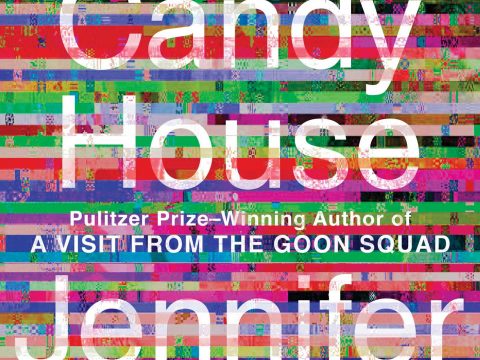 The candy house / Jennifer Egan
The candy house / Jennifer Egan
Egan revisits some characters from A Visit From the Goon Squad (2010) and their children to continue her exploration of what fiction can be and do in the 21st century. As Manhattan Beach (2017) showed, Egan is perfectly capable of writing a satisfying traditional novel, but she really dazzles when she turns her formidable gifts to examining the changes to society and individuals wrought by the internet and social media. One of those instruments of change is Bix, an NYU classmate of Sasha in Goon Squad but here a vastly rich social media magnate who, in 2016, makes the next leap in the “Self-Surveillance Era” by creating, first, Own Your Unconscious, which allows people to externalize their consciousness on a cube, and then Collective Consciousness, which offers the option of “uploading all or part of your externalized memory to an online ‘collective,’ ” thereby gaining access to “the anonymous thoughts and memories of everyone, living or dead, who had done the same.” Egan explores the impact of this unnervingly plausible innovation with her habitual panache, ranging from her characters’ pre-internet youths to the 2030s. While there are “eluders” like Bix’s son Gregory, who refuse to share their private thoughts with strangers, many are seduced by the convenience and power of this collective tool. The most stylistically audacious chapter shows us the scarily logical next step; it reproduces the instructions of a “weevil” implanted in the brain of Lulu, daughter of morally compromised Goon Squad publicist Dolly, now a spy married to “a visionary in the realm of national security.” As she did in in Goon Squad’s PowerPoint chapter, Egan doles out information in small bites that accumulate to demonstrate the novel’s time-honored strengths: richly complicated characters and compelling narratives. The final chapter rolls back to 1991 to movingly affirm the limits of floods of undigested information and the ability of fiction, only fiction, to “roam with absolute freedom through the human collective.” A thrilling, endlessly stimulating work that demands to be read and reread. Kirkus Review, April 2022
 Peach blossom spring / Melissa Fu
Peach blossom spring / Melissa Fu
When Longwei returns to Hunan Province in 1938 after fighting the Japanese, he reports that his younger brother, Xiaowen, husband to Meilin and father to Renshu, has been killed in action, spurring the events in this multigenerational novel. The first part of the book depicts Meilin’s harrowing struggle to protect and care for her young son while fleeing war, ultimately making a narrow escape to Taiwan. Meilin is written with tremendous appeal. She emerges as a hero, resourceful and clever, personable enough to make friends, smart enough to recognize danger, and capable of making a home, no matter the scarcity. The novel does a good job examining her ongoing relationship with Longwei, which grows increasingly complex over the course of the story. The author effectively transmits the chaos and dislocation of war, from losses that will never heal to chance encounters that save lives. In the second part of the book, Renshu transforms to Henry Dao as he immigrates to America and raises a daughter. Despite having been educated and living the bulk of his life in America, Henry is tenuous in his work and family life. He is haunted by childhood traumas that he cannot or will not share and never overcomes his sense that he and Meilin are under threat from Communist surveillance. His failure to fit in and his daughter’s brushes with racism provoke important questions about how America treats immigrants. Henry and his mother, their relationship frayed by distance and politics, reflect the concerns of generations of people forced by war to maintain family ties across continents. It is a weakness that the plot moves so fast, causing action to take precedence over suspense and nuance. The author plumbs the immigrant experience, illuminating a key slice of Chinese history from Japan’s invasion to Mao’s rise. Kirkus Review, March 2022
 The colony / Audrey Magee
The colony / Audrey Magee
With the arrival of two foreigners, a painter and a linguist, a sparsely populated island off the Irish coast becomes the setting for life-changing choices and conflicts. Magee’s multifaceted second novel is set in 1979 on a nameless rocky outcrop measuring three miles long and half a mile wide, population 92, where debates of profound significance about ownership and expression, language and culture, will develop. Mr. Lloyd, an English artist—heedless and demanding—has come to paint the island’s harsh beauty, tackling birds, cliffs, and light before embarking on the huge symbolic canvas he will think of as his masterpiece. The other visitor is Jean-Pierre Masson, a French linguist with an Algerian mother, returning to the island to finish a thesis he’s been working on for five years devoted to the speaking of Gaelic, the original Irish language, which is dying out—as is typical in cultures oppressed by a colonizer, in this case the British. The islanders, depicted with wit and restraint, differ in their responses to the two incomers. Young widow Mairéad sleeps with Masson and allows Lloyd to paint her nearly naked. Mairéad’s 15-year-old son, James, discovers his own aptitude for art through Lloyd, intensifying his intention of escaping the legacy of the island and the burden of cultural expectation. Meanwhile, the women hold island life together, working incessantly, immovably rooted. And punctuating this panorama of lyrical beauty, effort, and complex connection, Magee introduces the steady drumbeat of murder, as the factions on the mainland—Protestant versus Catholic, Ulster loyalists versus the Irish Republican Army—bomb and shoot their enemies: soldiers, policemen, fellow citizens. The pace is unhurried, the tone often poetic as the author assembles location, character, and identity, but Magee’s path is both subtle and steely, lending a sense of inevitability as opinions harden, trusts are betrayed, and old patterns reassert themselves, devastatingly. A finely wrought, multilayered tale with the lucidity of a parable. Kirkus Review, May 2022
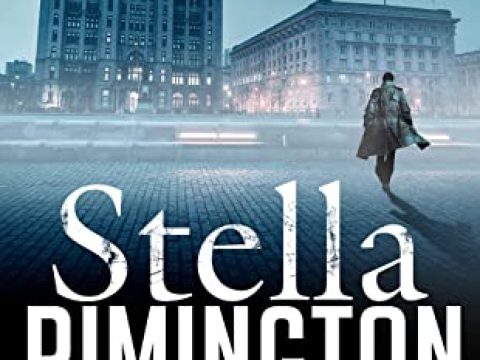 The devil’s bargain / Stella Rimington
The devil’s bargain / Stella Rimington
The Bulgarian freighter, Bogdana, visited Heysham regularly. Detective Constable Harry Bristow was the port’s Special Branch officer. He was on the quayside to make sure the crew who went ashore got back on again before the ship sailed. During the Cold War, a sharp eye was kept on Soviet and East European sailors. Igor ‘something unpronounceable’ went ashore as usual, but didn’t return. Bristow failed to report it. Years later, Harry Bristow, now a chief superintendent, represents the police force at a civic dinner in Liverpool. He joins the queue waiting to be introduced to the hosts for the evening, the Lord Mayor, the Lady Mayoress and Peter Robinson, the parliamentary candidate for the region. Bristow has met Robinson before; he was then called Igor. Manon Tyler has arrived to work at the US Embassy in London. She accepts a position in the counter-intelligence section. Louise Donovan is a political party strategist. She’s sent from London to help with Peter Robinson’s campaign to become an MP. It’s successful and Louise returns to London. She meets up with Manon whom she knew years ago when they attended the same university. Louise also meets Harry Bristow who has retired from the force and moved to London. Louise is attracted to Peter Robinson MP and their relationship blossoms. This involved spy thriller, skilfully composed and well paced is Stella Rimington at her best. You will have difficulty putting it down. Good Reading Magazine, June 2022
 The cartographers / Peng Shepherd
The cartographers / Peng Shepherd
Disgraced cartographer Nell Young, the protagonist of this extraordinary mystery from Shepherd, was fired by her father, Daniel Young, a cartographic scholar in the New York Public Library’s map division, after they argued over a map. Seven years later, Daniel dies in his office, apparently of natural causes. In a hidden compartment in his desk, Nell finds the map they argued over, a decades-old gas station road map of New York. She suspects the map is somehow related to his death, which she’s sure is a case of foul play. She seeks help from her ex, who now works for the tech giant Haberson, whose eccentric leader, William Haberson, wishes to map the entire world and all knowledge within it. Gradually, Nell connects with the talented cartographers who were friends of her father and long-dead mother years before. They tell her of their last summer together and warn her of the threat from a member of their group obsessed with Nell’s mother, who died in a house fire. Possessed of a questing intellect and a determined stubbornness, Nell proves smart enough to solve the various riddles she faces. Shepherd’s convincing blend of magic from old maps with the modern online world both delights and thrills. Publishers Weekly, March 2022
Return to top
HISTORICAL NOVELS
| Haydock, Sophie | The flames |
| O’Connor, Joseph | Shadowplay |
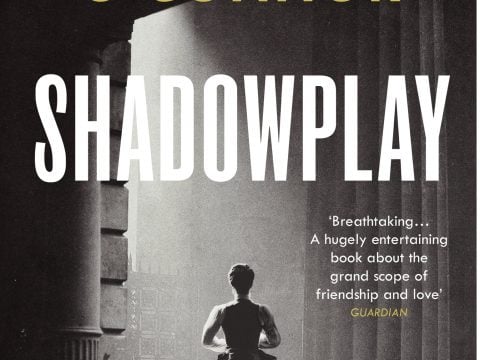 Shadowplay by Joseph O’Connor
Shadowplay by Joseph O’Connor
Better known as the author of Dracula, Bram Stoker in his day job as general manager of London’s Lyceum Theatre is the focus of Irish writer O’Connor’s atmospheric new novel. Mind you, there are plenty of nods to his famous horror story, from a ghost in the theater’s attic named Mina to a scene-painter named Jonathan Harker, plus the fact that the dreaded vampire bears a more than passing resemblance to Stoker’s mercurial boss, legendary actor Henry Irving. Harker turns out to be a woman, a twist that suits the seething homoerotic currents between Stoker and Irving, who can also be found entwined in the naked arms of co-star Ellen Terry. Terry’s voice as recorded in 1906—funny, bitchy, extremely shrewd about her acting partner’s gifts and limitations—offers a welcome counterpoint to the sometimes overly dense third-person narrative of Stoker’s tenure at the Lyceum and on tour in the late 1870s and ’80s, grappling with Irving’s neuroses while striving to snatch some time for his own writing. This is a tougher, colder work than Ghost Light (2011), O’Connor’s previous fictional excursion into theatrical lives, and that novel’s portrait of actor Molly Allgood’s love affair with playwright John Synge was gentler than this one of Stoker’s thorny relationship with Irving, a toxic blend of need, rage, resentment, and profound love. Still, the men’s bond is as moving and more unsettling, proof that, as Stoker later tells Harker, “Love is not a matter of who puts what where but of wanting only goodness and respectful kindliness for the loved one.” Irving seems less deserving of such kindness than Stoker’s assertive wife, Flo, who makes sure he gets copyright protection for the vampire story his boss cruelly dismisses as “filth and tedious rubbish from first to last.” Flo’s tender letter to Terry after Stoker’s death closes the novel, with another affirmation that “There are many kinds of love. I know that. He did, too.” An uneven mix of Dracula and theater lore but a thoughtful exploration of the tangled nature of desire and commitment. Kirkus Review, April 2020
Return to top
MYSTERY
| Atkins, Ace | The heathens |
| Bradford, Laura | Plus one for murder |
| Cairns, Rae | The good mother |
| Castillo, Linda | Outsider |
| Cummins, Fiona | Into the dark |
| Granger, Ann | The truth-seeker’s wife |
| Harris, C. S. | When blood lies |
| Herron, Mick | Bad actors |
| Hillerman, Anne | The Scared Bridge |
| Jonasson, Ragnar | Outside |
| Lancaster, Neil | Dead man’s grave |
| Lodge, Gytha | Little sister |
| MacBride, Stuart | No less the devil |
| McFarlane, Lyn | The scarlet cross |
| McTiernan, Dervla | The murder rule |
| Parks, Alan | May God forgive |
| Parsons, Tony | The people next door |
| Patterson, James | 22 seconds |
| Patterson, James | Death of the black widow |
| Rader-Day, Lori | Death at Greenway |
| Russell, Craig | Hyde |
| Ulstein, Silje | Reptile memoirs |
| Winspear, Jacqueline | A sunlit weapon |
| Winspear, Jacqueline | Elegy for Eddie |
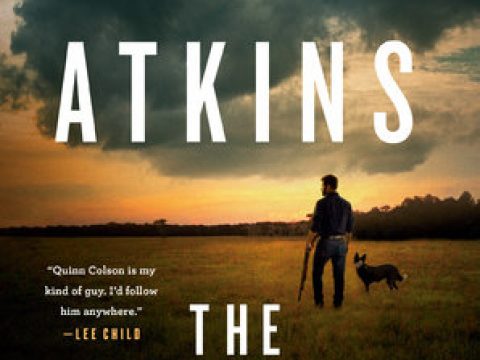 The heathens / Ace Atkins
The heathens / Ace Atkins
In Edgar finalist Atkins’s exceptional 11th crime thriller featuring Tibbehah County, Miss., Sheriff Quinn Colson (after 2020’s The Revelators), Colson’s complex family past complicates a murder investigation. Gina Byrd, a drug addict who was a classmate of Colson’s, is reported missing by her boyfriend after he finds some bloody clothes near her trailer. When Byrd’s dismembered remains turn up covered in bleach and stuffed into a barrel, Byrd’s 17-year-old daughter, TJ, who recently beat up her mother, is a natural suspect. TJ is reluctant to trust Colson, because the previous sheriff, Hamp Beckett, Colson’s uncle, was rumored to have killed her father, and fears she’s being framed. TJ flees town along with her nine-year-old brother, John Wesley, and her boyfriend, pursued by Colson’s friend and former subordinate, Lillie Virgil, now a deputy U.S. Marshal. Atkins artfully alternates between that pursuit and Colson’s search for the people he believes slaughtered Byrd. The diverse cast of characters and their intricate relationships elevate this above most other gritty crime novels. Atkins is writing at the top of his game. Publishers Weekly, July 2021
 Outsider / Linda Castillo
Outsider / Linda Castillo
A white-hot case reunites old friends who’d been estranged for years. Leaving the Amish community behind, Kate Burkholder was struggling to survive in Columbus, Ohio, when she met ambitious Gina Colorosa. They became friends, shared an apartment, and graduated from the police academy together. But when Gina started accepting freebies and bribes, their friendship foundered, and Kate eventually left to take a job as police chief in Painters Mill. Now Gina’s in trouble with fellow vice squad officers who think she stole a pot of drug money they were supposed to share. She barely escapes with her life when a no-knock warrant brings them to her house in the dead of night. The only person she can trust even after 10 years of silence is Kate. In the middle of a blizzard, Gina crashes her truck and almost freezes before she’s found by Amish widower Adam Lengacher, a childhood friend of Kate’s. When Kate arrives, Gina tells a sordid story of corruption at the highest levels and coverups concerning innocent civilians killed in a raid. The warrant out for Gina’s arrest and her own doubts about Gina’s incredible story put Kate in a tough spot. So she calls her boyfriend, Bureau of Criminal Investigation agent John Tomasetti, for advice. Snowed in, Gina tries to adapt to living in an Amish home with three small children and Adam, who’s clearly attracted to her. While they wait for Tomasetti to mine his sources, several of the crooked cops plot to track her down and kill her in what will look like an arrest gone wrong. A pulse-pounding Amish thriller (really!) that’s all too relevant to our time. Kirkus Review, July 2020
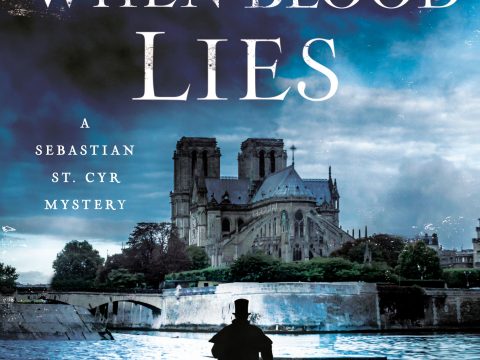 When blood lies / C S Harris
When blood lies / C S Harris
A son searches for his mother’s killer on the cusp of Napoleon’s triumphant return to Paris. March 1815 finds Sebastian St. Cyr, Viscount Devlin, in Paris with his wife, Hero, searching for the mother he’d long thought dead. Sebastian was born to Sophia, Countess of Hendon, and is the heir of the Fifth Earl of Hendon, but he’s not the earl’s natural son. For years he thought his mother was lost at sea only to learn she’d actually left his father and her children behind. His search for her has been made more difficult by the war raging across Europe, but with Napoleon in exile, he’s finally learned that she’s returned from Vienna to Paris using the alias Sophia Cappello. He’s crushed to find her bloody body near the home he’s renting, stabbed and thrown off the Pont Neuf. She dies before they can speak, and he vows to find the killer. Sophia has lately been mistress to Alexandre McClellan, formerly one of Napoleon’s marshals. The Bourbons are back in power, and France is restless under their rule, which is returning to the fanaticism of the monarchy before the revolution. The authorities seem determined to call Sophia’s death an accident, but Sebastian suspects politics are involved when he learns that Sophia had visited Elba before returning to Paris. A painting of McClellan inside her house, which he’s inherited, makes Sebastian wonder if the subject is his real father. The discovery of his mother’s reticule and then a jeweled leather bag sets him on a tortuous and dangerous search for the truth played out against the turmoil of Napoleon’s attempt to regain control of France. The detailed historical narrative blends seamlessly with a complex, fast-paced mystery. Kirkus Review, April 2022
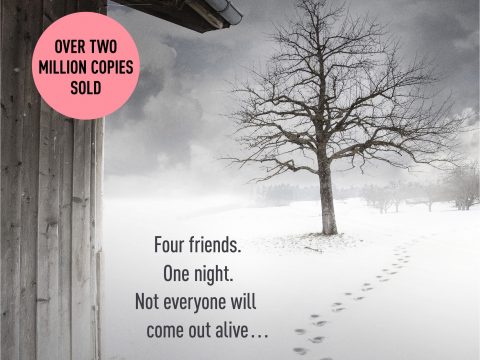 Outside / Ragnar Jónasson
Outside / Ragnar Jónasson
The ptarmigan hunt four old friends have planned for a winter weekend in the wilds of eastern Iceland goes south when the weather turns on them and they turn on each other. Three of the four—actor Daníel, attorney Gunnlaugur, and Helena, an engineer for a tech startup—would have no business traipsing around in the snow under any circumstances if it weren’t for the fourth, Ármann, a travel guide with a checkered past as a drug user–turned-dealer whose underworld connections in Denmark might well have killed him if Helena hadn’t ridden to the rescue. Once an unexpected snowstorm sends them searching desperately for a hut they can shelter in, it’s gradually revealed that the others all have secrets of their own. Daníel can’t stop lying about the fact that his career in London has never taken off. Helena’s still mourning Víkingur, the ex who died under suspicious circumstances five years ago. And Gunnlaugur is an alcoholic rapist whose two years on the wagon come to an end inside the hut, where the refuge they’ve sought swiftly turns nightmarish with the discovery of an armed stranger inside. No matter what they do, the man won’t move, won’t talk, and won’t put down his gun even when the group falls asleep. Soft-pedaling the supernatural trappings of The Girl Who Died (2021), Jónasson presents the weekend getaway as an excruciatingly slow-motion avalanche in which it’s obvious from the beginning, as Helene says, that “something’s got to die before we finish this trip”; the only questions are who, how many, under what circumstances, and at whose hands. A shivery delight. It’s nice that the Icelandic Tourist Board hasn’t paid Jónasson to quit publishing. Kirkus Review, May 2022
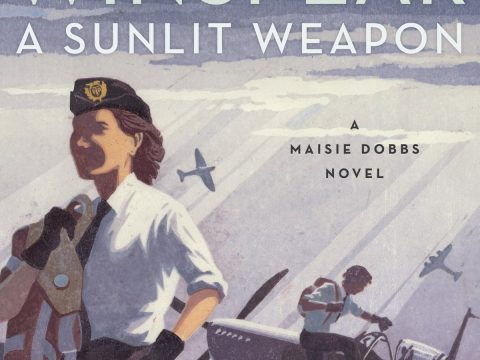 A sunlit weapon / Jacqueline Winspear
A sunlit weapon / Jacqueline Winspear
In 1942, Maisie Dobbs gets embroiled in diverse cases that involve her own family. Jo Hardy, a pilot for Britain’s Air Transport Auxiliary, is ferrying a plane across England when she’s shot at from the ground. When Jo and a friend return to the spot to investigate, they find a Black American soldier tied up in a barn who claims that his White soldier friend has been kidnapped. Later, Jo realizes that in the segregated American Army, Pvt. Matthias Crittenden is in deep trouble, and he’ll be held for the murder of the missing soldier. After Jo’s friend is killed during another plane delivery, Jo calls on Maisie, who’s living with her extended family in Kent, to investigate. Only the pull of Maisie’s highly placed American husband, Mark Scott, allows her to question Crittenden. Meanwhile, Maisie, who hates injustice of any sort, learns that her own adopted daughter is being bullied in school, another problem she resolves to straighten out. Maisie visits the barn and finds new evidence that may prove a connection between Charlie’s disappearance, whoever shot at Jo’s plane, and the impending visit of Eleanor Roosevelt, which worries Mark because of a credible threat to Maisie’s safety. Maisie’s ability to talk to all sorts of people and discern the truth helps her untangle a complicated mystery involving miscreants whose lives have been so warped that they’ve lost all empathy for others. A superb combination of mystery, thriller, and psychological study with an emphasis on prejudice and hatred. Kirkus Review, April 2022
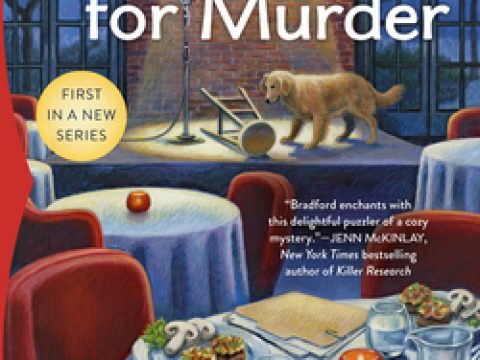 A plus one for murder / Laura Bradford
A plus one for murder / Laura Bradford
Bradford launches a new series about a failing travel agent’s ingenious plan to reinvent herself that goes horribly wrong. The travel industry’s in a funk, and Emma Westlake hasn’t booked a client in months. Her lifeline is her relationship with Dottie Adler. Dottie’s late husband arranged to have Emma paid handsomely for having tea weekly with his frail wife, a task Emma has come to enjoy. Still, Emma’s shocked when Dottie suggests that Emma should recruit other clients to pay for her companionship. While Emma mulls this suggestion, Dottie works the phones. Soon Emma’s agreed to accompany a senior citizen who gives his name only as Big Max to a dance at the local senior center and to serve as exercise buddy to Stephanie Porter, a workaholic who wants to develop a social life. Hoping to expand her pool of clients beyond the ones Dottie has referred, Emma prints up business cards offering her services as a companion for all of life’s plus-one moments. The listing she posts on a virtual community bulletin board nets her first non-Dottie-connected client, Brian Hill, who wants Emma to accompany him to a local club’s open mic night. Unfortunately, the only part of the poetry slam that interests Brian is the slam; before dinner, he shares with Emma a list of prominent people—all present in the room—he plans to insult publicly. Naturally, he falls over dead before he can get started. Emma panics, leaving the room with a list of now-probable suspects, and is faced with an increasingly complicated set of choices when Deputy Jack Riordan, the investigating officer, befriends her and Scout, her adorable puppy. Despite her quirky premise, Bradford ends up hugging a familiar cozy trail. Kirkus Review, December 2021
Return to top
NON FICTION
| Davis, Carmel Bendon | The mystics who came to dinner |
| Gates, Bill | How to avoid a climate disaster |
| O’Beirne, Sean | On Helen Garner |
| Tynan, Elizabeth | The Secret of Emu Field |
| Zubrzycki, John | The shortest history of India |
 How to avoid a climate disaster / Bill Gates
How to avoid a climate disaster / Bill Gates
A persuasive, optimistic strategy for reducing greenhouse emissions to zero by midcentury. In his latest book, Gates makes a significant contribution to the rapidly growing shelf of books that not only acknowledge climate change, but also propose viable solutions; other examples include Eric Holthaus’ The Future Earth and David Attenborough’s A Life on Our Planet. Gates moves several steps further in a comprehensible, at times amusingly wonky, text that provides detailed plans. The author relates a compelling vision of what the potential devastation will look like, assessing the scale and range of expected damage, but he is more interested in clearly communicating the multitiered facets of his plan. While drawing on his expertise and instincts as a successful tech innovator, investor, and philanthropist, Gates relies on teams of experts in science, engineering, and public policy to flesh out the details. The author focuses on five major emissions-generating activities—making things, plugging in, growing things, getting around, and keeping cool and warm—and he breaks down his global plan to address the level of a given country’s financial capabilities. Gates applies his 2050 goal to developed, relatively wealthy countries, with others following as soon as possible after that date. Though we already have some of the tools necessary to implement his plan, many of them are not used widely enough, and Gates presses for increased investment in well-guided research and development and innovation in the efficiency of our electricity use. “We need to accomplish something gigantic we have never done before,” writes the author, “much faster than we have ever done anything similar,” which will require building “a consensus that doesn’t exist” and policy that will “push a transition that would not happen otherwise.” Though Gates doesn’t shy away from acknowledging the daunting challenges ahead, his narrative contains enough confidence—and hard science and economics—to convince many readers that his blueprint is one of the most viable yet. A supremely authoritative and accessible plan for how we can avoid a climate catastrophe. Kirkus Review, February 2021
Return to top
ROMANCE
| Holton, India | The Wisteria Society of Lady Scoundrels |
 The Wisteria Society of Lady Scoundrels / India Holton
The Wisteria Society of Lady Scoundrels / India Holton
A lady scoundrel goes on a road trip with a smooth-tongued assassin in an alternate-universe Victorian Britain. Cecilia Bassingthwaite is anxiously awaiting her induction into the highest ranks of the Wisteria Society. This is a woman-only group of scoundrels and thieves who plunder the country in their magical flying houses while nursing intragroup grievances ranging from the petty to the lethal. But when her mentor is abducted along with the rest of the society, Cecilia sets off to rescue them from a nefarious villain, who just happens to be a frustrated poet (among other things). Tagging along are Ned Lightbourne; a man who may be a pirate; an Italian commissioned to kill her; and a royal agent trying to protect her. In this joyride of a debut, Holton draws us into a madcap world of courtly corsairs, murderous matrons, and pity-inspiring henchmen. Familiar romance tropes appear but as if in a fun-house mirror, with broad winks at their origins, while characters make sarcastic references to passionate novels in the Victorian canon. An additional comic effect comes from the ironic distance between readers’ expectations of the proprieties in historical romance (including steampunk) and the topsy-turvy rules of Cecilia and Ned’s universe. But the rules explain the characters and their actions so seamlessly that we never laugh at them but rather at the shenanigans of this kooky universe. As if The Parasol Protectorate series met “The Princess Bride” and a corseted “Lara Croft: Tomb Raider.” Kirkus Review, June 2021
Return to top
SCIENCE FICTION & FANTASY
| Harkin, Jo | Tell me an ending |
| Kowal, Mary Robinette | The calculating stars |
| Kowal, Mary Robinette | The fated sky |
| Mandel, Emily St. John | Sea of tranquility |
| Taylor, Jodi | A Catalogue of Catastrophe |
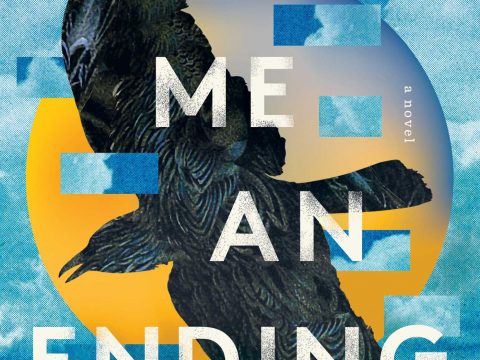 Tell me an ending / Jo Harkin
Tell me an ending / Jo Harkin
Five people are impacted by their connections to a memory-removal clinic in this debut novel. In an alternate near present, a tech company called Nepenthe offers a memory erasure procedure straight out of Eternal Sunshine of the Spotless Mind. Nepenthe patients can elect whether to remain aware they had a memory erased or to forget it ever happened. When new research suggests memories might not be permanently erasable—that they may naturally regenerate—the phenomenon of memory “traces” rollicks Nepenthe with controversy, prompting the company to offer memory restorations. Noor, a doctor at the flagship Nepenthe clinic outside London, begins to mistrust her supervisor, Louise, after observing some shady behavior regarding restorations. The narrative follows four additional characters, each from a close third-person perspective: Mei, a young woman in Kuala Lumpur who believes she is experiencing traces; Finn, an architect in Arizona who suspects his wife erased the memory of an extramarital affair; Oscar, a man in Marrakech who barely has any memory of who he is; and William, an ex-cop in West Sussex who wants to remove a memory that is causing him PTSD. The premise is intriguing and becomes more compelling as it progresses (particularly pertaining to Louise’s psychology), but the story takes a while to pick up steam. The present-tense narration drifts around in time, heavy on abstract questions and light on descriptive scenes, making it tough to stay grounded in the action. Harkin frequently describes each characters’ confusion—“Louise, what have you done? / Why did you do it? / What’s next?” asks Noor, on three separate lines—but struggles to differentiate their voices in other meaningful ways. References to philosophers like Sartre, Hume, and Locke aim for cleverness and depth, hitting the mark as often as not. Interconnected storylines all arrive at the same conclusion: Messing with memory is messy business. Kirkus Review, March 2022
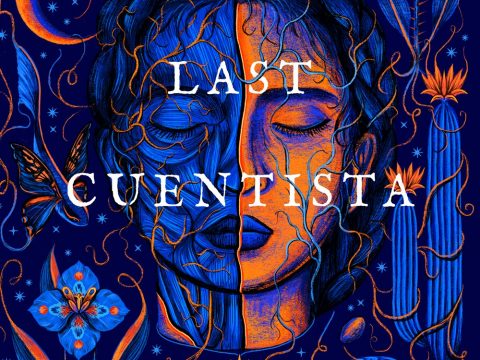 The last cuentista / Donna Barba Higuera
The last cuentista / Donna Barba Higuera
With Halley’s comet barreling toward Earth, humanity’s last hope—including a young Latinx storyteller—retreats into the stars. Only a select few have the opportunity to vacate Earth in the year 2061, travel for 380 years in stasis, and start a new life on the planet of Sagan. Tearing herself away from her grandma and her cuentos, or stories, Petra Peña follows her family aboard one of three fleeing spaceships. One ship—reserved for leaders and politicians—is lost. Petra awakens years later to find that the ominous Collective has taken over her ship. Along the way to Sagan, the Collective has ensured the eradication of any Earth-associated memories, reprogramming everyone onboard—and purging some—for the so-called greater good. Petra, however, eludes reprogramming. To survive the Collective’s fanaticism, Petra must play her part and participate in scouting missions on Sagan to help the Collective prepare for colonization. As she shares cuentos with other child passengers to stir their Earth memories, Petra concocts a plan to escape, seeking a rumored Collective-free colony of First Arrivers on Sagan. With poetic use of startling imagery and unabashed nostalgia, Higuera spins a tale that crosses the depths of space, interweaving Mexican folklore with a mystical strand of science fiction. It all works thanks to the author’s keen appreciation of storytelling’s role in shaping cultures, dreams, and lives. An overall slow burner, this tale packs a wallop. An exquisite tonic for storytellers far and wide, young and old. Kirkus Review, October 2021
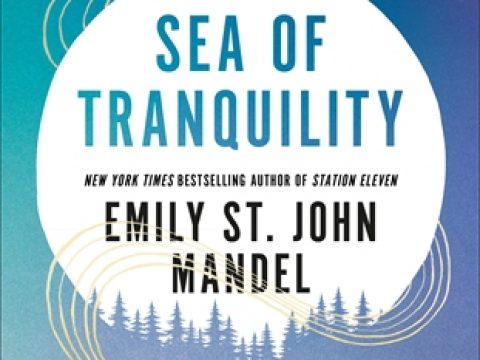 Sea of tranquility / Emily St. John Mandel
Sea of tranquility / Emily St. John Mandel
The one rule that should never be broken for time travel is that you should just observe the past, never change it. It’s a rule that tests investigators from the Time Institute, situated in Colony Two on the moon. Gaspery Roberts, after a going-nowhere career as a security guard in a hotel, would like to be given a chance to test himself investigating the past. The golden rule in fiction is that protagonists are introduced front and centre in the narrative. In this page-turning novel, Gaspery is merely an incidental character in the first half of the book. This is far from a mistake, however, as Mandel eases the reader into an imagined world from the recognisable past to the present and through to the future. Three separate characters, from three separate time periods witness what feels like an hallucination to them: under a maple tree in a forest in British Columbia, a blackout, and violin music in a station of some sort. Edwin (exiled from England) knelt under the tree in 1912; Vincent filmed it by accident in 1994; Olive (bestselling author, with a character after whom Gaspery is named) walked through the terminal in 2203. Gaspery’s sister, Zoey, works as a scientist in the Time Institute. While Gaspery is keen to investigate this apparent glitch in time, Zoey fears for his future should things go wrong. Pandemics – sadly very topical – appear throughout. Mandel envisions each time period flawlessly, capturing and rounding every character and place into a believable whole. She even finds space for a metanarrative on post-apocalyptic fiction. Her plotting is exceptional, with the denouement offering a plausible and inevitable conclusion. Without doubt, the best speculative fiction this year. Good Reading Magazine, June 2022
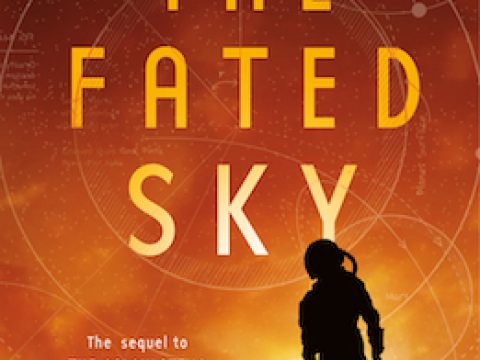 The fated sky / Mary Robinette Kowal
The fated sky / Mary Robinette Kowal
A female physicist journeys further into space in Kowal’s (The Calculating Stars, 2018, etc.) sequel, set in an alternate version of the 1960s. In 1961, Dr. Elma York is about to finish her three-month stint on the moon. In Kowal’s last book, set a decade earlier, a meteor smashed into the East Coast, destroying many cities, including Washington, D.C. The U.S. government believed that this was the beginning of the end for our planet, so an international effort to colonize space began with pilot and physicist Elma at the forefront. Now, having reached the moon, the space program sets its sights on Mars. Elma desperately wants to go there, but the round trip will take three years, taking her away from her infallibly supportive husband, Nathaniel, and any possibility of starting a family. The story is loaded with historically accurate science, and while Kowal is striving toward hard sci-fi, the analytical readers that this genre attracts are likely to have questions. For example, would an international coalition really need South Africa’s support so desperately they would agree to include a virulent racist on a racially integrated mission? Why is there not even a single mention of the Soviet Union or its cosmonauts? And the biggest question: Are we supposed to like Elma York? She’s irritatingly quirky, repeatedly using rocket metaphors as euphemisms for sex (“I slid my hand down to his trousers to see if launch conditions had been met”). She’s also morally reprehensible in one key scene. FBI agents ask her about two of her colleagues, and she realizes that they’re doing so because those fellow astronauts are black. She’s about to do the right thing and walk out—but when the feds threaten her program’s funding, she sits right back down and tells them everything they want to know. Later, when Elma is finally castigated for her racial cluelessness by an astronaut of color (“For the love of God, stop talking….I cannot take the protestations of a well-meaning white woman”), readers will find themselves nodding in agreement. The worst tendencies of white feminism—in space. Kirkus Review, July 2018
Return to top
New additions to eBooks at SMSA
EBOOKS
| Biography | Khalil, Shaimaa | Runaways |
| General novels | Kawakami, Mieko | All the Lovers In the Night |
| General novels | Fisher, Tarryn | An Honest Lie |
| General novels | Winslow, Don | City on Fire |
| General novels | Baxter, Ella | New Animal |
| Historical novels | Hargrave, Kiran Millwood | The Dance Tree |
| Mystery | Dahl, Kjell Ola | Little drummer |
| Mystery | Jordan, Jack | Do no harm |
| Mystery | McTiernan, Dervla | The Murder Rule |
| Mystery | Lackberg, Camilla | Trapped |
 New animal by Ella Baxter
New animal by Ella Baxter
Australian writer Baxter debuts with a raw and mordant story of a woman processing her grief, sexuality, and family relationships. Amelia Aurelia is in her late 20s and working as a cosmetic mortician at her stepfather Vincent’s mortuary, where the steady stream of corpses keeps her constantly aware of mortality. She deals with this by sorting her emotions into two “boxes,” one for the living and one for the dead, and copes most nights by pursuing hookups. When her mother unexpectedly dies, Amelia becomes desperate for connection. Her older brother leans on the man and woman in his throuple for comfort, while Vincent turns to the bottle. Instead of staying for the funeral, Amelia flies to Tasmania to stay with her biological father and explores BDSM with random dates. She also takes a new funeral home job and processes her grief. Baxter delicately balances the emotional heft of the situation with dark humor (Amelia, asked how she identifies while on the way to a kink club, responds, “Human woman, tired, sad, on a date with you, not wholly sure what a sadist is”) and finds clever ways to push Amelia toward coming to terms with her limits. It adds up to a convincing look at a young woman’s path toward self-acceptance. Publishers Weekly, 10 January 2022
 An honest lie by Tarryn Fisher
An honest lie by Tarryn Fisher
Rainy, the protagonist of this initially slow-moving suspense novel from Fisher (The Wrong Family), has moved from New York City, where she was a successful sculptor, to Washington State to be with her boyfriend, Grant. She has spent a year, largely in vain, trying to make friends with the wives of Grant’s buddies. When “the girls” suggest a trip to Las Vegas, Rainy balks, thinking: “Worst idea ever…. This trip, this gaudy, neon-crusted city—these women!” She finally agrees to go after repeated entreaties from Grant. The trip reveals repressed resentments among the women and stirs up disturbing memories from Rainy’s early life in a commune near Las Vegas. When Rainy receives a text message telling her that one of her traveling companions has been kidnapped, she knows that her past has caught up with her and is ready for action. Flashbacks detailing Rainy’s life as a young teen some 15 years earlier in a cult run by a messiah-like leader fuel the sense of menace and set up the book’s exhilarating, action-packed finale. Readers will cheer as Rainey risks everything to bring down the man who stole her childhood. Fisher delivers the goods. Publishers Weekly, April 2022
 All the lovers in the night by Mieko Kawakami
All the lovers in the night by Mieko Kawakami
Kawakami (Heaven) returns with a sensational story of loneliness and friendship. Fuyuko Irie, 34, is an asocial freelance proofreader in Tokyo with a repressed libido, self-described as possessing the “self-absorption of a single woman who [does] nothing with her life but work.” Friendships elude her except when they’re related to her professional life, particularly her outspoken and free-thinking editor, Hijiri Ishikawa. In Fuyuko’s free time, she wanders aimlessly in the Shinjuku shopping district and binges on sake. Then, at a culture center, she meets Mitsutsuka, a considerably older high school physics teacher, who introduces her to Chopin’s soothing, transcendent “Berceuse” lullaby. They bond over theoretical discussions of quarks, string theory, and the physical and philosophical nature of the “mysteries of light” until Mitsutsuka reveals a disheartening truth about himself. The author dazzles with her exploration of emotions and intertwining of lofty discussions of metaphysics with descriptions of Fuyuko’s routines, making her an extraordinary character who moves effortlessly between different worlds as she struggles to find herself. Kawakami turns this study of a “dictionary definition of a miserable person,” as Fuyuko calls herself, into an invigorating and empowering portrait. It’s a winner. Publishers Weekly, May 2022
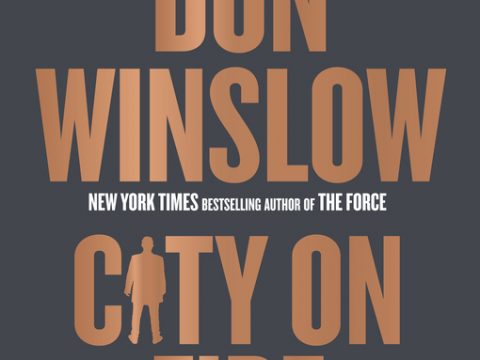 City on fire by Don Winslow
City on fire by Don Winslow
Set in 1986, this impressive series launch from Edgar finalist Winslow (the Cartel trilogy) focuses on the follies, vendettas, and private ambitions of warring mobsters in Providence, R.I. Well-connected, rival mob families have managed to coexist in the city in relative harmony for decades, with aging racketeer John Murphy and his Irish clan controlling the docks in the upper southside, known as Dogtown, and Pasco Ferri’s Italian circle on Federal Hill ruling the trucking industry. Murphy’s son-in-law, conscientious Danny Ryan, whose father once controlled the Irish syndicate, frequently does jobs for the powerful Moretti brothers, Peter and Paulie. But when Danny’s arrogant, troublemaker brother, Liam, drunkenly molests Paulie’s new girlfriend, it tears the fabric of their association, triggering a vicious lasting feud that wrecks the balance of power irrevocably. With Pasco’s retirement imminent, the provocation is the perfect excuse for the Morettis to beat Liam almost to death and initiate a power grab that forces peacekeeper Danny into a desperate battle to protect those he loves. Winslow’s epic slow-burner, full of richly layered characters and tender personal struggles, bubbles to an intricate, exciting climax. Crime fiction fans will eagerly await the sequel. Publishers Weekly, July 2021
Return to top
AUDIOBOOKS
| General novels | Blackwell, Juliet | The Paris showroom |
| General novels | Shapiro, B. A. | Metropolis |
| Historical novels | Rodale, Maya | The mad girls of new york |
| Mystery | Bush, Nancy | The babysitter |
| Mystery | Cutts, Jenny | The invisible body |
| Mystery | Donlea, Charlie | Twenty Years Later |
| Mystery | Dylan, Jess | Death in bloom |
| Mystery | Graham, Heather | Sound of darkness |
| Mystery | Murphy, Margaret | The darkest hours |
| Mystery | Thompson, Victoria | Murder in Little Italy |
 Twenty years later / Charlie Donlea
Twenty years later / Charlie Donlea
The murder of wildly successful author Cameron Young in 2001 drives this enjoyable if less than credible thriller from Donlea. The primary suspect in Young’s headline-grabbing death was Victoria Ford, but before she could be tried, Victoria died in the World Trade Center on 9/11. Messages left on her sister’s answering machine that day and the identification of Victoria’s remains, recovered at Ground Zero, in 2021 lead Avery Mason, the host of a popular TV news show, to investigate the cold case. New evidence suggests that somebody may have framed Victoria for Young’s murder. Proving Victoria innocent—and finding the real killer—is just the leverage Avery needs in her cutthroat contract negotiations with the network executives. The case also offers a chance of redemption to retired FBI agent Walt Jenkins, who now spends his days lost in a bottle of rum. With a dangerous secret in her past threatening to come to light as the Young case evolves, Avery races the clock to solve more than one mystery. Never mind that this secret could have been easily uncovered by anyone researching her life. Breathtaking pacing and clever plot twists mask thinly developed characters. Donlea’s fans will be satisfied. Publishers Weekly, November 2021
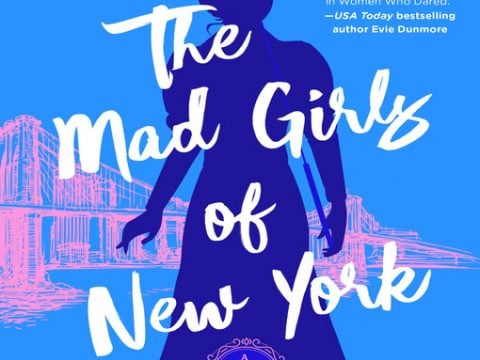 The mad girls of New York / Maya Rodale
The mad girls of New York / Maya Rodale
Seven days in Blackwell Island’s infamous Insane Asylum for Women. That’s what Nelly Bly promises her editor in 1887 New York City, where women reporters were scarce and had to work hard to prove themselves worthy of a position at a newspaper. Bly took on this life-threatening assignment for the New York World with only a verbal agreement from her editor that he would get her released at the end of the week. Suffering cold, hunger, and physical and mental abuse, the women of Blackwell Island rarely saw freedom once they had been admitted. Nelly hopes her story will not only serve as an interesting piece in the paper but also give voice to the women trapped in the asylum. Based on a true story, the latest from romance writer Rodale (An Heiress to Remember, 2020) offers gripping details of the treatment of women in the asylum and in New York City at large. Readers will eagerly turn the pages to see if Nelly will escape the prison she willingly entered, all to prove herself worthy of a story. Booklist, April 2022
 Metropolis / B. A. Shapiro
Metropolis / B. A. Shapiro
The Metropolis is a storage facility in a busy Boston neighborhood, a relic of a more sophisticated time, six stories of brick with crazy round windows and castle-like towers. Some people are calling their units home. One man is an unstable street photographer scraping by on his dishwasher salary. One woman is hiding from ICE while she finishes her doctoral dissertation. Another man operates his law office there, and another woman, avoiding an abusive marriage, has disturbingly re-created her children’s bedroom in her unit. Even the units containing actual storage have their own oddities: one is filled with doghouses, another with violins. The building manager profits from his tenants’ desperate needs and eccentricities, as they attempt to deal with lives beyond their control. When someone is critically injured in an elevator accident, and the police suspect foul play, it is left to Zach, the building’s owner, to find the answer. This spellbinder from the bestselling author of The Art Forger and The Muralist leaves the reader at once moved and mystified. Booklist, February 2022


